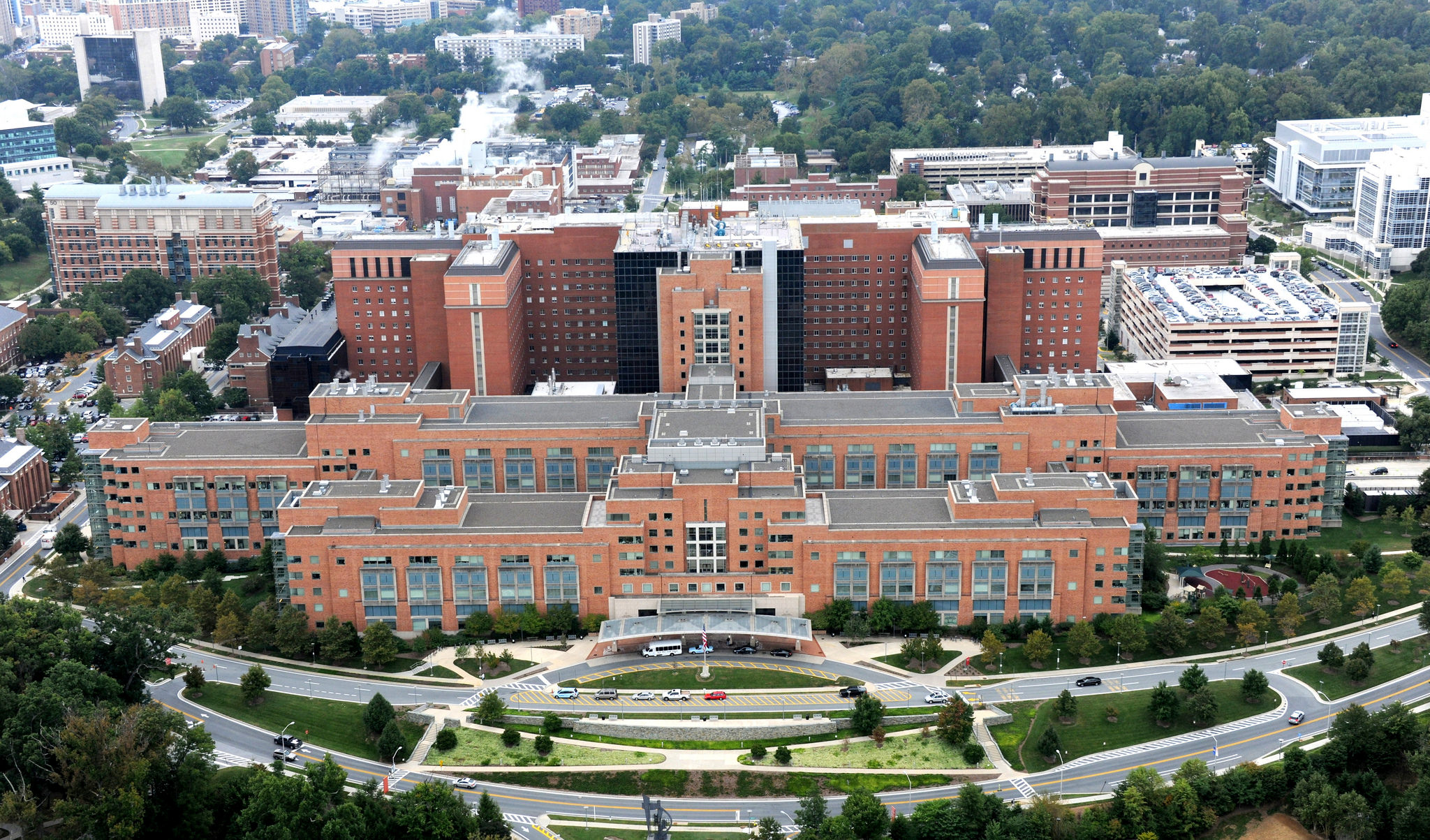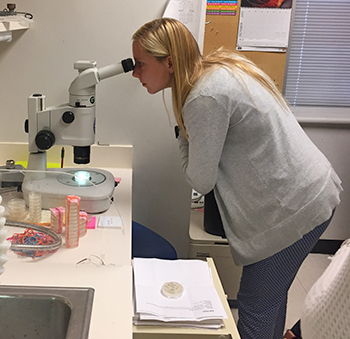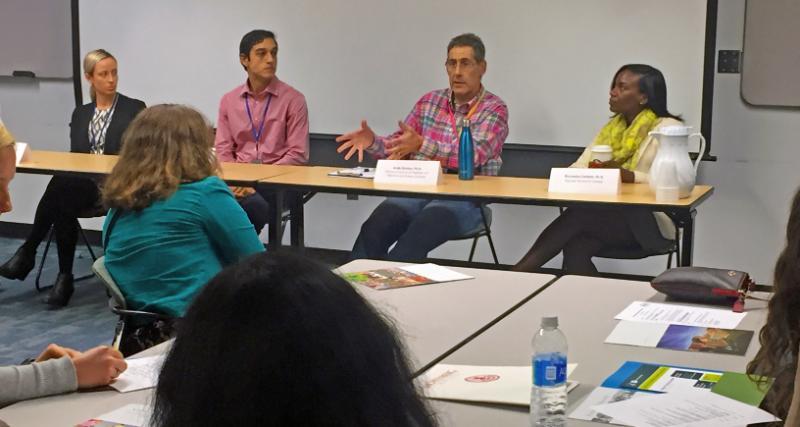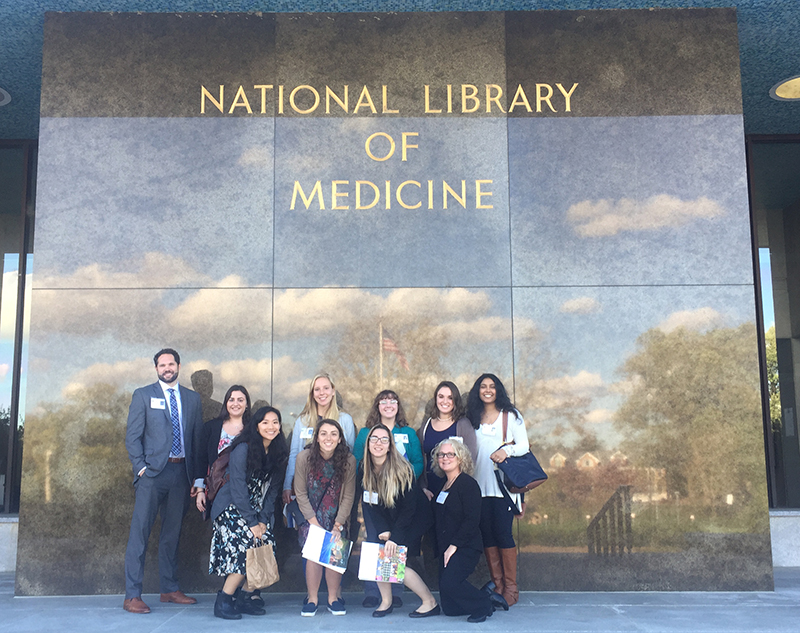The Ultimate Campus Tour for Students Interested in Health Research
The sprawling grounds of the National Institutes of Health outside Washington, D.C. are home to a variety of opportunities for natural sciences majors.By: Meghan Kita Friday, November 3, 2017 02:00 PM
 Photo provided by National Institutes of Health
Photo provided by National Institutes of HealthAndy Golden ’82, a senior investigator at the National Institutes of Health (NIH), researches genetic mutations in microscopic worms called C. elegans. His lab holds petri dishes in which the worms reproduce, high-powered microscopes that allow his team to see what they’re doing as they work with the worms and a contraption called The Belly Dancer, which is agitating a closed plastic container in a circular motion as Golden gives visiting Muhlenberg students a tour.
Andy Golden ’82 (second from right), a senior investigator at the National Institutes of Health (NIH), speaks on a panel during the D.C. Career Road Trip. Photos by Meghan Kita.
Despite the fact that there’s no shortage of activity here, Golden understands his research may not seem the most glamorous on a campus that’s home to, say, clinical trials on human subjects.
“I used to search the cover letters the NIH would get for the term ‘elegans,’” Golden tells the students, who are here as part of the Career Center's D.C. Career Road Trip. “I stopped when I realized most of them said, ‘I tried elegans and now I want to try something new.’”

For example, people with long-undiagnosed rare diseases may receive a thorough genetic workup via the NIH Common Fund’s Undiagnosed Diseases Network, which shares information with Golden’s lab. “They’re thrilled if you can tell them their mutation—you’re starting now with a gene that you know is associated with a disease,” Golden says. “You need to understand that before you can give them a therapy or a cure,” and replicating and manipulating that mutation in C. elegans is an inexpensive way to help build knowledge.
Students chose to tour Golden’s lab or two others after a Q&A with a panel of four NIH employees—including Golden—that showcased the variety of career paths available there: One was an epidemiologist examining risk factors for colorectal cancer, another was a vaccine researcher and the last was a postdoc studying gastrointestinal disease.
While there’s ample competition for internships, fellowships and jobs at the NIH, the panelists shared wisdom the students could use to get a leg up. “Don’t just apply to the program: Find researchers who are doing work you’re interested in and write to them,” Golden told the students. “I only take people who write to me. There’s nothing that flatters me more than someone who likes what I do.”
Maggie Jabeir ’19, a public health major, was excited to participate in the Career Center’s first visit to the NIH: “Typically the Career Road Trips have more options designed for finance/business majors, so it was refreshing to have an option for my field,” Maggie says. “The NIH is one of the largest medical research facilities in the country and is a place I dream about working at once I finish my degree.”
Students finished the day with a tour of the National Library of Medicine.


